Expectations for Business in 2023

BizBuySell just released its latest insight report, which tracked sales and growth in 2022 and compared it to the prior year. Overall, we are seeing a high demand for service-based businesses as well as an increase in restaurant business sales. The insight report also reveals what business brokers across the country are expecting for 2023 and beyond.
Data on Service Business Sales
In 2022, 39% of the acquisitions tracked by BizBuySell were service businesses, and their transactions were 7% higher than 2021. The service sector typically includes predominantly financial and healthcare related businesses. These types of companies are usually considered to be low-risk.
Across the map, buyers were willing to pay more for service businesses last year. In fact, the median sales price for service businesses rose 4% over 2021. It’s interesting to note that the sales prices were even higher than the pre-pandemic levels. Also, there is a trend towards buyers seeking out socially responsible and environmentally conscious businesses.
Data on Restaurant Businesses
Restaurant businesses also did quite well in 2022. In fact, the acquisitions of restaurants jumped 20% over 2021. They previously had plummeted 38% in 2020. While these numbers are strong, they are still 21% lower than before COVID.
Restaurant businesses also had less time on the market. The median days were 169 instead of 176 the year before. Restaurants also sold for more money. The median revenue for closed transactions was up 7% and the cash flow was up 13%. It seems that the general consensus is that dining out is popular again after years of struggles due to people avoiding meals in public.
Expectations for 2023
The conclusion of this data collected about 2022 is that buyers no longer will benefit from sitting it out. Higher interest rates are expected to be more and more of an impact for buyers in 2023. The good news is that most experts are expecting rates to get better in 2024.
Business brokers surveyed by BizBuySell expect that the market in 2023 will continue at the same place as it did in 2022. Many sellers will seek to retire. The concern of a recession should also motivate more baby boomers to sell. In fact, 45% of owners are saying they are selling to retire. At the same time, buyers will be looking for profitable companies that will grow.
The data revealed by BizBuySell indicates that those who are buying businesses may currently have the upper hand. In fact, 47% of brokers say that their view is that the market has shifted towards buyers. They attribute this to rate increases. They are finding that the majority of buyers are saying that current businesses are overpriced.
Sellers Must Be Flexible
The insight report shows that overall business brokers believe there is pressure on sellers to be more flexible in their pricing and terms. As always, seller financing is essential. In fact, 90% of buyers are saying it’s important for owners to offer this option to them. 95% of brokers echo this sentiment.
It should come as no surprise that businesses with strong financials are in high demand. When these businesses are considered recession proof, this fact is even more true. But even sellers with the strongest businesses may still have to consider offering financing or adjust prices due to the higher rates. Sellers who want to sell in the near future, of course, should begin preparing their exit now.
Copyright: Business Brokerage Press, Inc.
The post Expectations for Business in 2023 appeared first on Deal Studio – Automate, accelerate and elevate your deal making.

5 Elements for Buyers to Investigate

When you’re in the process of buying a business, it’s important to stay logical. No matter how good the opportunity may seem at first glance, be sure to carefully evaluate the business in a step-by-step manner. Regardless of how excited you might be about the prospect of ownership; you’ll want to have your guard up when you go through the due diligence process. Let’s take a look at 5 of the most important questions to ask yourself before signing on the dotted line.
1. Do you have a personal interest in the business?
Needless to say, owners have made businesses successfully thrive even if they lack a personal interest in what is being sold. However, you might want to stop and ask yourself if you do indeed have a passion for the goods or services offered by the business in question. If you are uninterested, you may find it harder to make a long-time commitment.
2. What is the business plan like?
It’s helpful to see the goals of the current owner and evaluate which of these goals have actually been achieved. If there is no business plan, this should give you pause.
3. How does the business perform?
Take a look at the business’s overall performance. Do you get the feeling that the business requires many hours of intensive work from the owner? If so, remember that this owner putting in all of those hours could be you in the near future. Is there a reliable manager to oversee operations in your absence?
4. What are the demographics?
Who are the key customers? Are there several main accounts that the business depends upon or a wide variety of customers and clients? Needless to say, if the business relies on just a few key accounts, this could be problematic if things were to change. Further, do you see a clear way to add new customers in the future? Before you buy a business, you’ll want to feel confident that you can help it thrive and grow.
5. Are you satisfied with the financials?
Once you’ve successfully signed the necessary written agreements, you’ll want to take a deep dive into the business’s financials. Make sure that everything has been provided including:
- Tax returns
- Profit and loss statements
- Balance sheets
- Bank statements
The bottom line is that you will want to be careful when purchasing a business and watch for any red flags. The last thing you want is to make a hasty decision that you regret later on.
Copyright: Business Brokerage Press, Inc.
The post 5 Elements for Buyers to Investigate appeared first on Deal Studio – Automate, accelerate and elevate your deal making.

What You Need to Know About Partnership Agreements

There have been countless instances when someone has gone into business with a relative or close friend and made the mistake of skipping a formal agreement. No matter how good a friend may be, you will always want to get the terms of the partnership in writing. A partnership agreement is a vitally important document that is designed to protect all parties. It will reduce the possibility for disagreements or misunderstandings down the line. When you make sure you have everything documented legally, it will greatly serve you and your partner(s).
Building Your Partnership Agreement
Your partnership agreement should first and foremost address the general rules of the partnership. This means it should cover who owns what, and how you will handle profits and losses. It should cover the basics of issues that may seem obvious, such as what are each partner’s roles and duties. And it should also address the details pertaining to resolving small potential problems that you may never expect to actually arise.
Financial Issues
A good part of your partnership agreement should address issues related to money. As you can imagine, misunderstandings about earnings can quickly become huge disagreements if the details are not plainly stated in writing. On a very practical level, you’ll want your document to cover what percentage of earnings both you and your partner will receive. You will even want to go into detail about how money is distributed. What if money is required to keep the business operational and thriving? You’ll want to cover the details of who will contribute any necessary funds and how this will be handled.
Other Decisions
Another decision you’ll want to make now will cover the nature of decisions themselves. For example, how will you make business decisions? Is it a vote, and if so, how does that vote work? You can also include other situations that could arise, such as what happens in the instance of the unfortunate death of one of the owners? What happens if you decide to bring in an additional partner or partners?
Getting Assistance with Your Legal Documents
While it might seem possible to create your partnership agreement on your own, the best thing you can do is hire a competent professional to help you. That way you’ll know that your partnership agreement is written in the most accurate way possible.
When you have this document established, you can proceed with your partnership with confidence that any potential problems down the line are addressed. It may take some extra time and consideration now, but in the long run, you’ll be able to run your business smoothly and more efficiently. The fact of the matter is that if you address everything now in a partnership agreement, it will benefit your business for years to come.
Copyright: Business Brokerage Press, Inc.
The post What You Need to Know About Partnership Agreements appeared first on Deal Studio – Automate, accelerate and elevate your deal making.

A Look at the Market Pulse Report

The Market Pulse Report Survey is a resource that has a variety of information that business brokers and M&A advisors regularly utilize to better understand the business landscape. The most recent survey was conducted April 1st to April 15th 2022 and had 360 broker and advisor respondents. It also marked the 40th edition of the quarterly report. The Executive Summary of the report can be accessed here https://www.ibba.org/resource-center/industry-research/
The Main Street Market
One notable fact included in the latest report is that in the Main Street market, between 70% to 80% of buyers are likely to come from within a 20-mile radius. However, with larger companies, it is common for buyers to originate from a distance of over 100 miles away or greater.
The survey also indicated there are two key “headwinds” that businesses are currently facing. These include labor shortages and supply chain issues. Not surprisingly, labor issues are currently creating problems for organic growth. Likewise, supply chain issues can cause prospective buyers to shy away from a business.
The Profile of Current Buyers
The survey also indicated that Main Street buyers not only include the “typical” first-time business buyer. These individuals are often looking for a job in the form of owning a business. Serial entrepreneurs who have made money off previous deals are also now seeking to jump back in and buy another business. The survey indicates that about one-third of buyers who purchased businesses in the $500K to $1M range are serial entrepreneurs.
Additionally, there is a great deal of money flooding into the industry. The money is mostly coming from private equity, family offices, and corporations. Feeling burned by the lack of bank credit by the 2008-2009 economic downturn, these buyers don’t want to get caught in a similar situation again.
A Seller’s Market
The survey indicates that it is currently a seller’s market and that record setting multiples have been occurring. In Q1, an impressive 97% of businesses were receiving their asking price. However, nothing lasts forever. If you’re considering selling your business, it’s a good idea to start making progress now before this trend stops benefitting sellers.
Even with the strong sales track record last quarter, it’s important to note that a fast sale is still improbable. Even in the best economic conditions, it typically takes many months to sell a business.
There are many factors currently benefiting sellers, such as low interest rates, SBA involvement, and people not wanting to work for corporations. However, it’s important not to wait for the “right moment” as often that moment never comes.
It’s always a good idea to begin taking steps to prepare for the sale of your business as soon as possible. This can make a tremendous difference toward fostering a positive final outcome.
Copyright: Business Brokerage Press, Inc.
The post A Look at the Market Pulse Report appeared first on Deal Studio – Automate, accelerate and elevate your deal making.

Three Reasons Why You Might Want to Own a Business

Have you been thinking that business ownership is for you? Many people are committed to the idea of owning a business and work hard to pursue this goal. Of course, the path towards buying a business is indeed complicated and requires a significant investment of not only money but also time. As a result, you’ll want to ensure that you are fully committed to business ownership before beginning the process. Let’s take a look at some common reasons why individuals choose to buy a business.
Desire to Grow Your Income
Most people will say that they would like to make more money. However, keep in mind that while owning a business will likely mean you grow your income, it also requires a significant amount of work, especially in the early stages.
Research shows that the longer you own your business, the more profits you will generate. Those who have owned their business for more than a decade will typically earn more than 100K a year. Of course, owning a business always comes with a degree of financial risk, but if you do successfully run your company for a series of years, you will likely succeed financially. Just be prepared for the possibility that the first few years may not generate as much income as you had hoped.
On the positive side, owning your own business allows you to have control over your financial destiny. You have the ability to make decisions that will grow your business
Interest in Shaping Your Lifestyle
When you work for someone else’s business, the way your life is organized is dictated by the rules and regulations of the company. For example, you may want to work at home, but your job requires you to spend 40 hours a week in the office.
If you want to make key decisions that impact your day-to-day life, owning a business will be quite attractive to you. You will be able to decide not only where you work, but also how many hours you work and with whom you work. You have the power and ability to shape many aspects of not only your life, but the life of your employees as well.
You are Willing to Take on Some Risk
The personality of a typical business owner is a person who is comfortable with taking on some risks. After all, not all businesses succeed. At some level, you are always risking your time, money, and energy. Of course, this aspect will vary dramatically depending on the kind of business you acquire.
It is also important to consider that many business owners find that they are working around the clock. They simply cannot go home and forget about their job at the end of the day. In sharp contrast, they are always on call and actively thinking about their business and relevant decisions. You also may not get a paid vacation or sick days.
Guardian Life Small Business Research Institute studied the ideal personality traits for a business owner and found that successful owners are action oriented, curious, self-fulfilled, tech-savvy, and future focused. They surveyed over 1,000 small businesses to generate this data. If you resonate with these traits, it is likely you are indeed cut out to own a business.
Copyright: Business Brokerage Press, Inc.
The post Three Reasons Why You Might Want to Own a Business appeared first on Deal Studio – Automate, accelerate and elevate your deal making.

4 Takeaways from the Latest BizBuySell Quarterly Report

BizBuySell is an online resource that focuses on offering unique content that specifically addresses the needs of buyers and sellers. To make this happen, BizBuySell has teamed with a range of experienced business brokers who are covering topics relevant to business owners, buyers, and sellers. For example, they feature articles that focus on how to make a business more interesting to a potential buyer. These resources help to position BizBuySell as a go-to place for a range of relevant business information.
Of course, every quarter BizBuySell publishes Insight Reports complete with interactive market data. These reports offer a comprehensive overview of trends that are essential for brokerage professionals to know about. The latest report can be accessed here. It covers important trends noted in the first quarter of the year.
Some of the changes that were noted in this important report include the following:
1. Rebounding Transactions
For Q1 2022, the Quarterly Report indicates that transactions are continuing to rebound from the slump of Q2 2020. Year over year, transactions shot up a whopping 24% and are now beginning to return to 2019 levels.
Overall, the main sector that seems to be holding back an even stronger rebound is the restaurant sector, which is still not where it was in pre-pandemic years. However, with that stated, the restaurant sector has also dramatically improved and has shot up by 42% year over year. Yet, the restaurant sector is still down 22% from Q1 2019.
2. Changing Buyer Preferences
When BizBuySell surveyed buyers as to what kind of business they wanted to buy, the numbers were eye opening. 35% of surveyed buyers responded that they were interested in the service sector, and this was followed by 15% of respondents choosing retail. Director of Sales Doug Whitmire stated, “Buyer demand seems to be leaning toward business services, self-storage, car washes, as well as advanced distribution services for manufacturers. There have been few opportunities, so buyers are flocking to them and inventory is limited.” The result of the limited inventory is record sales prices.
3. Listing Growth
In Q1 2022 listing growth has increased substantially, with service listings up 14%. While the restaurant sector is obviously still lagging, it is important to note that the Quarterly Report indicated that restaurants were experiencing a 10% growth. If the pandemic continues to recede, we could see a robust rebound in the restaurant sector.
4. A Boom in Sellers
The Q1 report also indicates that sellers, who have previously been sitting on the sidelines, are deciding that now is the time to sell. Once again there is talk of a “silver tsunami” approaching as Baby Boomers begin to sell. It is also interesting to note that many of those who are selling are doing so due to burnout. Importantly, burnout is occurring for a variety of diverse reasons, ranging from supply chain and labor issues to pandemic burnout.
Advice for Sellers
The BizBuySell team strongly advises that sellers should fix major supply chain issues before entering the market. Whitmire noted, “We try to get our clients to work with us to fix those issues before we go to market. Many times, you only have one chance with a buyer and then you lose them.” It definitely makes sense for sellers to try their best to remedy any issues that might have resulted from Covid-related circumstances. This will ensure that the sales process goes as smoothly as possible.
Copyright: Business Brokerage Press, Inc.
The post 4 Takeaways from the Latest BizBuySell Quarterly Report appeared first on Deal Studio – Automate, accelerate and elevate your deal making.

The True Meaning of a Fairness Opinion

Many people assume they know what “fairness opinion” means because they are familiar with the term “fair market value.” Fair market value refers to a price that is reasonable for both a buyer and seller in an open and competitive market. However, a fairness opinion is quite different. This term refers to a report that evaluates the facts of a merger or acquisition or any other type of business purchase.
A fairness opinion is typically in the form of a letter that contains an actual opinion and justification of why a selling price is fair. Of course, there are limitations, as this report is fully based on information that has been provided by the management of the business.
Who Prepares a Fairness Opinion?
A fairness opinion must be prepared by a professional with expertise in business valuation. It is typically done by a business intermediary or appraiser. An investment banker can also prepare a fairness opinion. Although the professional who prepares the fairness opinion may very well have experience in structuring deals, this letter does not include any information or opinion on the deal itself. It also doesn’t include advice or recommendation. In preparing the report, the advisor seeks to look at the deal from the perspective of the investors.
Basically, it is structured to specifically comment on fairness from a financial perspective, based on the information on hand.
Who Uses Fairness Opinions?
You will most frequently see fairness opinions utilized in the sale of public companies by the board of directors. When this document is received, it shows that the board is working to protect the shareholders. Of course, fairness opinions can also be used for private companies. In this case, it can serve to protect the interest of shareholders or family members who may later look to challenge the sales price. However, in most situations that involve middle market private acquisitions, a fairness opinion is not necessary.
In the end, a fairness opinion assists with communication and decision-making. It serves to lower the risks surrounding a deal. This important document can be used in court if a shareholder later decides to file a lawsuit against the director of a company.
Copyright: Business Brokerage Press, Inc.
The post The True Meaning of a Fairness Opinion appeared first on Deal Studio – Automate, accelerate and elevate your deal making.

Is it Possible to Buy a Business Without Collateral?

When it comes to getting a loan, you can be certain that a bank will want collateral. This is true for both personal and business loans. Simply stated, if you have collateral, your bank won’t be concerned about being left empty handed if you can’t repay the loan. Many budding business owners are, in fact, held back by the fact that they lack the collateral needed to buy a business. However, the good news is that there are ways that one can buy a business with no collateral or very little collateral.
The Small Business Administration (SBA) is the first stop for those wanting to start a business with a low level of collateral. The SBA’s 7 (a) program provides banks with incentives to make loans to buyers. It is through this program that the SBA will provide guarantees for a whopping 75% of the loan amount. The borrower still has to have the remaining 25% of the loan amount. This means that on a $1 million dollar business, the borrower just has to come up with $250,000 and not the full $1 million dollars.
Through the SBA’s 7 (a) program it is possible for prospective business owners to consider businesses that would otherwise be completely out of their reach. Yet, there is a second excellent aspect to the program, namely that the cash that buyers use to meet the 25% requirement can come from an investor or a gift. Anyone looking to become a first time business owner will want to fully explore all that the SBA’s 7 (a) program has to offer.
A second route for those looking to buy their first business is seller financing. Seller financing is not rare, as many may suspect. This method of financing is actually quite common. If sellers are motivated, they are much more willing to consider seller financing. Keep in mind that there are many reasons why a seller may be motivated, such as retirement, unexpected personal problems, or just burnout. Seller financing and the SBA’s 7 (a) program could, in some situations, be used together. This combination could serve to greatly increase your chances of buying a business.
This is not to state that there are zero obstacles or limitations with the SBA’s 7 (a) program. For example, the program requires that sellers cannot receive any form of payment for a full two-year time period. There are ways to address this problem, but it is something that buyers and sellers alike should be ready to address.
A lack of collateral doesn’t have to mean the end of the dream of owning a business. If you are interested in owning your own business and lack collateral, meet with a consultant at S.C.O.R.E. and other experienced professionals, such as a business broker or M&A advisor. An experienced brokerage professional will have a wide-array of ideas for how to buy a business with little or limited collateral.
Copyright: Business Brokerage Press, Inc.
The post Is it Possible to Buy a Business Without Collateral? appeared first on Deal Studio – Automate, accelerate and elevate your deal making.

4 Questions to Ask Yourself Before Buying a Business

When in the process of buying a business, some buyers have accidentally overlooked important questions that need to be asked. However, you don’t want to find yourself in a situation where you wish you’d found out details that would have impacted your decision-making. With that in mind, let’s take a look at some often-overlooked inquiries.
1. What Is Included in the Sale?
It is possible to get so focused on the purchase of the business itself, that you overlook key details such as what is included. Don’t just assume that you’ll also receive important assets such as real estate, inventory, or machinery. All of this must be carefully outlined and documented. You will want to know exactly what you’ll be getting for your investment.
2. What Assets Are Included?
You’ll want to get the ins and outs of the proprietary materials and ensure that they are included with the business. If there is intellectual property, such as patents and copyrights, formulations, or software, you’ll want to ensure it is included. If it’s not included in the sale, you’ll want to know why. After all, the success of the business could depend on these.
3. How Can You Grow the Business?
Before you buy a business, it’s a good idea to ask yourself about its potential for growth. Many sellers will be prepared to provide you with ideas and strategies. If it is deemed that the growth for the business is limited, this is something you’ll want to determine in advance. Also, it is important to think about the amount of working capital you’ll need to not only run the business, but also to make any necessary changes.
4. What is the Staffing Situation?
You’ll want to think about how dependent the business is on the current owner or manager. If and when the current owner leaves, how much will that impact operations? You’ll also want to know in-depth information about who the management team is and how experienced they are. It is essential that your expectations are in line with reality.
As you can see, many variables must be taken into consideration before you sign on the dotted line. Much of this will be handled during the due diligence process. However, it is essential that you ask the right questions and speak up whenever you need clarity on an issue. When a business is properly vetted, you’ll not only be satisfied, but you’ll also be more successful.
Copyright: Business Brokerage Press, Inc.
The post 4 Questions to Ask Yourself Before Buying a Business appeared first on Deal Studio – Automate, accelerate and elevate your deal making.

Takeaways from the Latest BizBuySell Insight Report

Whether you are thinking of buying or selling a business, it’s worth taking a look at the quarterly BizBuySell reports. The findings from these publications are taken from analysis of sales and listing prices of approximately 50,000 businesses across the United States. The report covers the statistics of sales prices and successful transactions. It also discusses the trends that are at play. Regardless of your role in the business world, these trends likely will have some sort of impact on you.
A Boom for Sellers
The latest BizBuySell report, which covers Q4 of 2021, found that now is a very positive time for sellers. Q4 actually surpassed the pre-pandemic numbers of the fourth quarter of 2019. Of course, this is a major shift away from the sales numbers in 2020. It is typical to see transitions dip in the fourth quarter; however, 74% of brokers stated that their sales were steady during this time period. Experts say that this strength has carried into early 2022.
Other notable sales statistics include the following:
- 8,647 closed transactions were reported in 2021, an increase from 7,612 in 2020
- Sales prices increased 16% year-over-year
- Median cash flow grew 10% year-over-year
Buyers are Looking for Quality
In terms of what buyers are currently looking for, 60% of surveyed buyers indicated that strong financials were simply a “must have” when they were considering a business. This number is in stark contrast to 18% of buyers who responded that discounted opportunities were a top consideration.
Labor Shortages a Factor
The BizBuySell report also discussed the prevalent factor of labor shortages. In fact, 64% of owners surveyed say that this issue has impacted them. Business brokers agree that labor shortage is currently the largest problem for small businesses. Another corresponding issue is that of supply chain disruptions, which 75% of the business owners responding to the survey said had an impact on them.
A More Balanced Landscape
In the survey, brokers were asked if they believed that owners were more or less likely to sell their business in 2022 versus 2021. The general trend was towards brokers believing that there would be more businesses sold this year as compared to last year. Last year, the view was that buyers had the edge over sellers. However, now it seems as though brokers feel that the landscape has shifted and become more balanced overall.
Copyright: Business Brokerage Press, Inc.
The post Takeaways from the Latest BizBuySell Insight Report appeared first on Deal Studio – Automate, accelerate and elevate your deal making.
